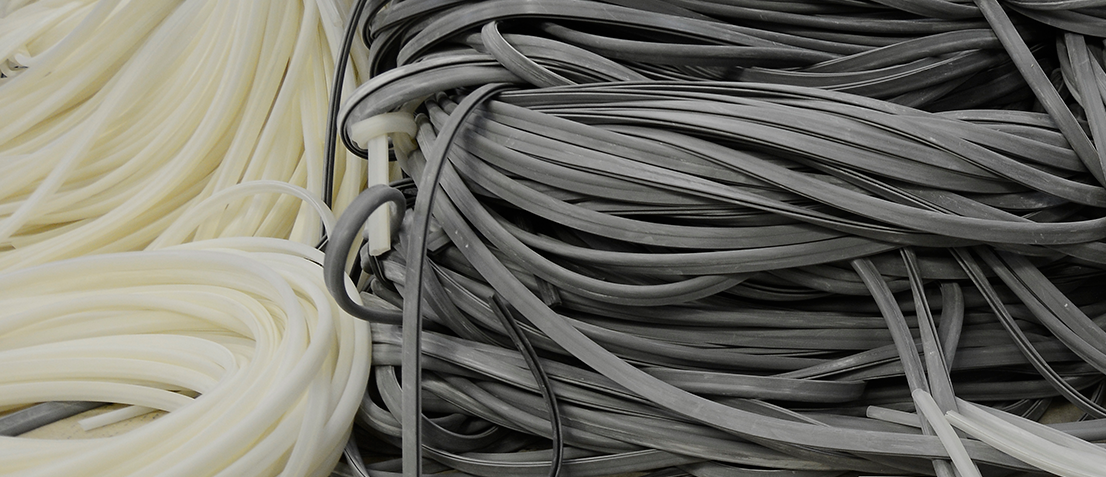In a comparison between natural rubber and synthetic rubber, which is better? It is essentially a competition between man and nature. Maybe this isn’t such a simple opposition, since properties will determine which type of rubber is more suitable for each application, or perhaps, if necessary, a combination of both, as it happens with car tyres.
Below we compare both types of elastomers, so that you can decide for yourself which one meets your needs better.
NATURAL RUBBER
• Highly resistant to traction, which means that it has high ability to stretch and then return to its initial shape.
• Resistant to wearing out due to chipping, cutting and tearing.
• Moderately resistant to heat and light damage. In some cases, it can be very vulnerable to these factors.
• Easily degradable, especially under extreme conditions.
• Unique composition: this material does not admit variations as it is always processed in the same way, providing, as a result, the same product universally.
SYNTHETIC RUBBER
Produced using petroleum-derived materials.
• More resistant to abrasion.
• More resistant to heat, grease and oil.
• Flexible at low temperatures.
• As it is artificially produced, it is easier to obtain. However, this does not mean it is cheaper.
• Performs well in extreme temperatures and environments.
• Chemical resistance: it is not easily altered when it comes in contact with other materials.
• There is variation among synthetic rubbers. Different types of synthetic rubbers are produced using different materials and are used for more specific applications.
PROPERTIES IN COMMON
• Non-reactive: both are chemically resistant to many liquids, including water and weak acids.
• Excellent as protective layers or adhesives.
• Great insulation ability.
• When they reach freezing temperatures, they become very fragile.
• Both can undergo vulcanisation, which means chemical bonds are strengthened with sulfur.
Despite of their similarities, each one has its own uses given their specific properties. In general, natural rubber surpasses synthetic rubber in amount of applications, but it cannot be customised for specific functions. So, if this was a competition, both would clearly be winners. Whether you wish to use natural or synthetically produced rubber sheets, you can be sure you are getting a product that will meet all your industry’s needs.






BUENAS TARDES!
DISCULPE LAS MOLESTIAS,MI CONSULTA ES LA SIGUIENTE:
DISPONGO PARA OFRECERLE EN CASO DE ALGÚN INTERÉS POR PARTE DE VUESTRA EMPRESA CAJAS PARA REUTILIZACION O RECICLADO.
EN UN SUPUESTO INTERÉS,CONTACTARME A FIN DE COORDINAR ENTREVISTA O CONSULTA.
SIN OTRO PARTICULAR Y ESPERANDO UNA RESPUESTA FAVORABLE LOS SALUDO ATENTAMENTE!
Buenos días Daniel, ya derivamos su mensaje al área correspondiente, en caso de verlo factible se contactarán con usted vía email.
Saludos y gracias por escribirnos.